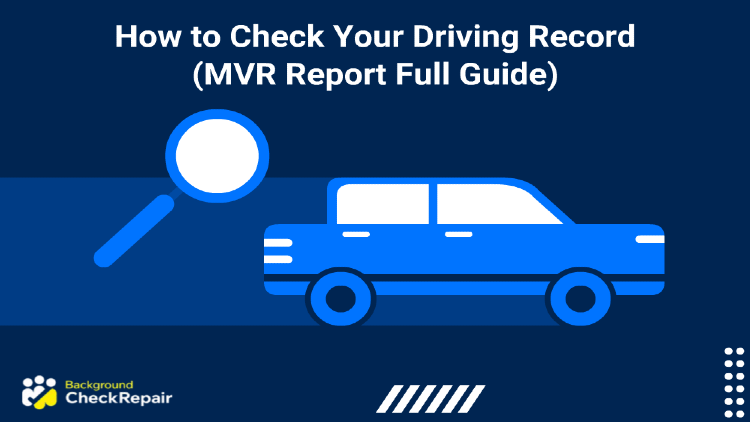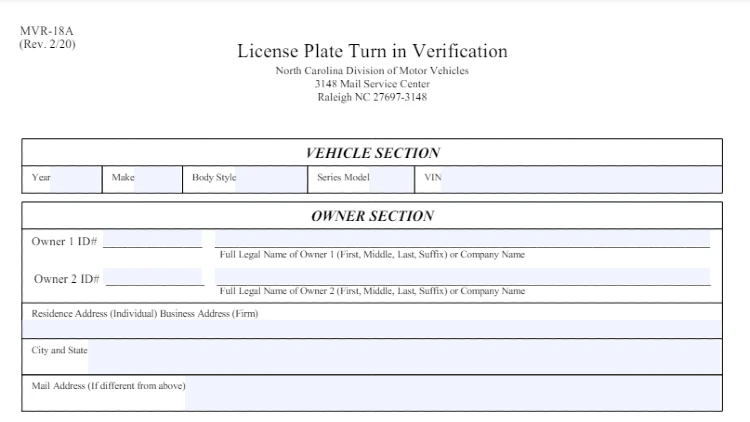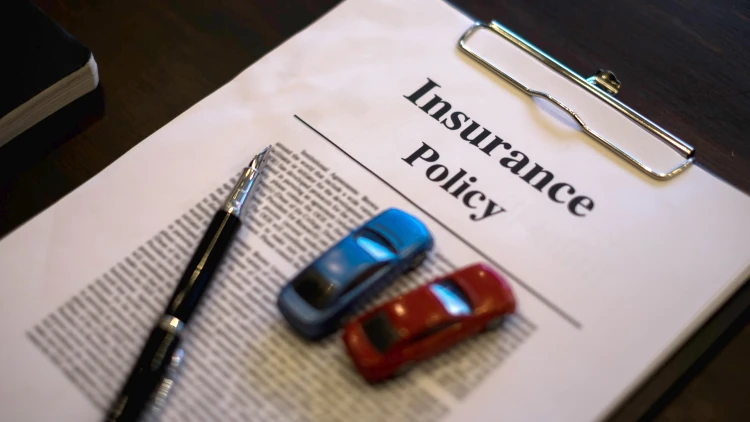
Most drivers are concerned about keeping a good driving record because your ability to be insured and insurance rates are directly tied to what is in your MVR report.
So, it’s important to know how to check your driving record for accuracy and know the relevant 2023 laws applicable to your driving record. It’s also helpful to know exactly how you can obtain a copy of your driving record.
This article is a full guide that outlines the laws of 2023 laws pertaining to the proper use of and requirements for obtaining your driving record report.
By the end of this article, you will know exactly what an MVR report is and how to check your driving record. You will also know why you might need a copy of your driving record report, and how to obtain a copy of yours, for all states in the United States.
Let’s take a close look at what an MVR is, how it is used, and how to get a copy. We will also review how to check tickets on your license, how to get a copy of your record online, and whether getting a free driver records check is possible and wise.
What Is MVR and What Does MVR Mean?
MVR is an initialism for Motor Vehicle Report. Your MVR is a report that documents your entire driving history. Your MVR begins the moment you are first granted a driver’s license. It will likely document:
- Your name
- Your address
- Traffic tickets you have received (including any DUIs)
- Accident reports for any accidents you’ve had
- Your date of birth
- Your height
- Your weight
- Your eye-color
- Your driver’s license number
- Your driver’s license issue date
- Your driver’s license expiration date
- The class of license(s) you hold (e.g., personal, chauffer, commercial, motorcycle)
- Any restrictions (e.g., requirement for corrective lenses for vision, daylight driving only)
- The status of your driver’s license (e.g., valid, current, expired, revoked, suspended)
- Driving points
Some violations may be removed from your MVR after a certain period of time. However, this depends on the state and the type of violation. For example, in California, a DUI generally stays on your MVR for 13 years.
How Is a Motor Vehicle Report Used?
A motor vehicle report may be used for numerous reasons. It often is used as part of the requirements for a background screening and can be used as part of other background reports, for purposes of employment, and by insurance companies.

(Image: North Carolina DOT5)
An MVR could be used as part of a background check. For instance, a protective parent could have a background check conducted to check the MVR of his child’s friends or the friends’ parents. A parent may want to know that his child is not riding in a vehicle with an unsafe driver.
If you are applying for an employment position where driving is part of the job description, your employer will definitely want to review your MVR as part of a full-scale records check. An employer could be found liable if they negligently hired a person to drive on the job.
If a person has an MVR showing that he is not a safe driver, then the employer may be exposed to liability. If the employee caused harm to another person or their property while driving, the employer may be deemed liable because the employer knew or should have known the employee was not a safe driver.
Insurance May Use Your MVR Report
Most insurance companies use your MVR to determine whether or not to insure you. They also use the report to determine your premium (your rates). Your premium amount is mostly determined by how much of a risk the insurance company believes it is taking by insuring you.
The insurance company tries to get an idea of how responsible a driver you are. If you have numerous speeding tickets, a DUI, or accidents, an insurance company may even decline to offer you an insurance policy. If it does agree to insure you, the premium you pay will likely be much higher than the premium paid by a driver with a clean MVR report.

Most insurance companies consider the past 3 to 7 years of history from the DMV.1 However, this depends on the insurance company and the state in which you reside. More minor offenses, like speeding tickets, usually only raise your premiums for 3 years. However, more serious offenses on your MVR may be considered even if they occurred more than 7 years ago and may continue to keep your premiums higher than they otherwise would be.
You can help lower your insurance rates by improving your MVR. Ways to improve your MVR are:
- Drive safely to keep from getting any new citations or having any new accidents
- Obtain a copy of your MVR and correct any errors contained on the report
- Take a defensive driving class
How To Get Your Driving Record and Check Your Driving Record for Issues
How to obtain your driving record depends on where you live and on the type of MVR report you need. In each state in the United States, you can get a copy of your MVR from the state’s Department of Motor Vehicles. You will usually need to pay a fee, which usually is in the range of $2 – $25.2 Some states may offer unofficial MVRs, certified true copies, or limited copies. The cost of obtaining the report depends, in part, on how detailed and official you need your copy to be.
Each state will vary somewhat in the process of how to check your driving record. But, in most cases, you will need to:3
- Decide what kind of record you need to obtain (certified true copy, unofficial, limited, etc.)
- Fill out an application from your state’s Department of Motor Vehicles (note: not all states use the same title for this department)
- Provide the necessary identifying information, including driver’s license number, full name, social security number, etc.)
- Pay the fee required for the type of copy requested
To check your driving record, you can:
- Go to your state’s Department of Motor Vehicles website and view your MVR online.
- Go directly to a local DMV office near you.
- Request a copy of your MVR via mail.
You should carefully check your MVR report for accuracy. If you see any errors on the report, it is important to go to your local DMV to discuss the inaccuracies. Your local DMV can explain their process for disputing information contained on your MVR.
How To Check Tickets on License
If you are concerned about whether you have any tickets showing on your license, you will want to check with the DMV.

So, how do you check to see if you have an outstanding ticket on your license?
- Go to your local DMV with your driver’s license and ask them to check their database to see if any tickets show up
- Call your local DMV and ask them if they can tell you whether you have any outstanding tickets
- Request a copy of your MVR and review for outstanding tickets
How To Get My Driving Record Online?
You may be able to access your driving record online. Most people can use a website to check their driving record. It is slightly different from the process of obtaining records from the police. These are the steps that are typically followed:
- Go to your state’s department of motor vehicle website.
- Enter your first and last name, address, driver’s license number, date of birth, and class of license. (Note: You will likely need to enter all this information exactly as it appears on your driver’s license.)
- This site may also ask for the reason for the request. The options can be: Employment Purposes, Insurance Purposes, Address, and Self.
- Enter payment information to pay the fee for the MVR (most states charge something).
- The MVR typically appears immediately for downloading or printing.
Free Driver Records Check Process (Can It Be Done?)
Some websites advertise a free driving record check. However, it is not wise to waste your time with one of these sites if you need to know what is actually on your MVR or if you need a valid copy of your driving record.
First, most of the sites that offer a free driving record check, end up requiring some payment before delivering the results of the search.
Second, and more importantly, the information available through free sites may not be accurate or complete. If you need to know what is actually on your report, you need to go to the source – your state department of motor vehicles. This is where you will find an official copy of your driving record.
Third, if you need to provide an official copy of your MVR for employment or insurance purposes, the report from a free online site will not suffice. Again, if you need a valid copy of your MVR report, you can’t get that from a free online website. You need to go to your state’s department of motor vehicles.
Look Up Driving Records by State: DMV Driver Records
All states in the United States have a department that handles Motor Vehicle issues. Many of them are called the Department of Motor Vehicles, however, some states have different names for this department. Below is a list of Department of Motor Vehicle Websites for all 50 states and the District of Columbia:4
Frequently Asked Questions About Motor Vehicle Records (MVR Report)





